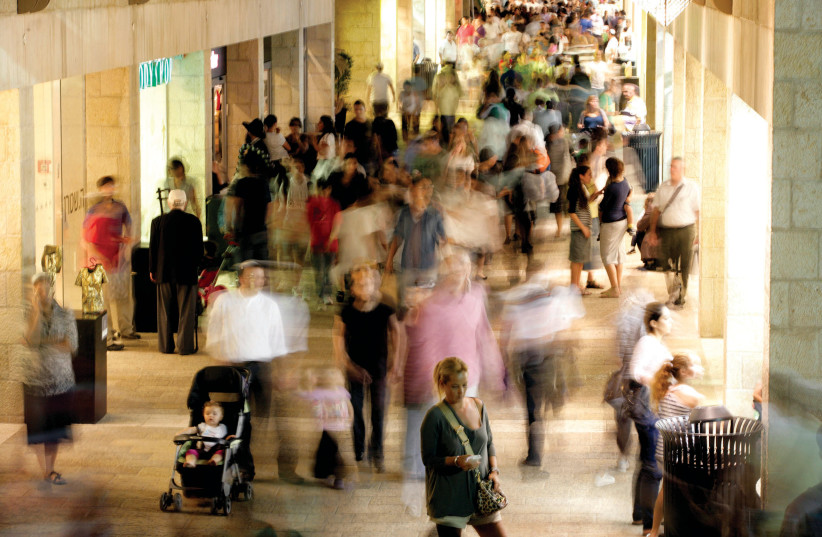On Friday, the Post’s Khaled Abu Toameh reported that Palestinian activists have renewed calls for Arab residents of Jerusalem to boycott the upcoming municipal election in the city.
That would be a mistake.
Arab residents of eastern Jerusalem constitute a significant portion of the city’s population, yet their participation in municipal governance has been extremely limited over the years.
As Abu Toameh explained, “The majority of the Arab residents have boycotted the municipal elections since 1968, claiming that participation would be interpreted as recognition of Israel’s annexation of east Jerusalem. Only a few thousand voters, mostly municipal employees and Arab Israelis living in the city, have cast their ballots in previous elections.”
Most of Jerusalem’s Arab population resided in the city’s eastern half when it was under Jordanian occupation between 1949 and 1967 and became permanent residents of Israel when the city was reunited under Israeli rule following the Six-Day War.

“The vast majority of the Arabs in east Jerusalem hold Israeli-issued blue ID cards due to their status as permanent residents of the entire city that Israel deems to be Israeli territory,” Abu Toameh continued. “This status grants them the same rights as Israeli citizens, but with one exception: voting in the Knesset elections. As such, the Arab residents of the city are entitled to vote and run in the municipal elections, but most have preferred to heed calls from Palestinian factions and political activists to boycott the electoral process.”
Boycotting municipal elections directly harms Arab Jerusalemites and limits their ability to impact the myriad challenges facing them.
Eastern Jerusalem faces numerous unique challenges, including housing shortages, inadequate infrastructure, and limited access to municipal services. As this paper noted recently, the disparity between the two halves of the city is stark.
While the city is plagued by high poverty overall – 42% of city residents live below the poverty line – its Arab population is disproportionately affected. A striking 60% of the city’s Arab residents live under the poverty line, compared to 31% of Jewish residents (the Jewish poverty rate is driven in large part by poverty among the city’s haredi community, which is at 43% – still significantly below the rate among Arab Jerusalemites).
The sorry state of affairs in eastern Jerusalem is evident in the condition of local streets, in the accumulation of garbage throughout the area’s neighborhoods, and in the shortage or absence of basic municipal services. One need only walk across the light rail line dividing the city’s two halves to see the differences between them.
The Jerusalem city council does not have a single Arab member due to the ongoing boycott. That’s a shame, and it is easily rectified. By voting in municipal elections, Arab residents can elect representatives who will concentrate on addressing their unique challenges.
Participating in municipal elections carries the potential for improving the standard of living for the city’s Arab population: they can advocate for affordable housing initiatives, improved transportation networks, and the expansion of social services. Engaging in the electoral process gives residents a chance to hold elected officials accountable and advocate for the allocation of resources in a fair and balanced manner, leading to an overall enhancement of their daily lives.
Municipal elections being boycotted achieves nothing
Boycotting the municipal elections, on the other hand, achieves nothing. It has no meaningful effect on the city’s status and it does not impact the chances that eastern Jerusalem will remain under Israeli rule in any potential peace agreement between Israel and the Palestinians. All it does is shut Arab Jerusalemites out of the municipal decision-making process, ensuring that their concerns go unheard and unaddressed by the city’s leaders. While this may be exactly what Palestinian extremists want, as it deepens Arab Jerusalemites’ sense of discontent and disenfranchisement, it directly harms the overwhelming majority of the city’s Arab residents, who deserve a higher standard of living than they currently have and have the democratic means of pursuing one.
Jerusalem’s Arab residents should reject calls for yet another pointless boycott of the municipal elections and participate actively in the democratic process.
The municipal elections are a little more than four months away. Now is the time to start getting out the Arab vote.
